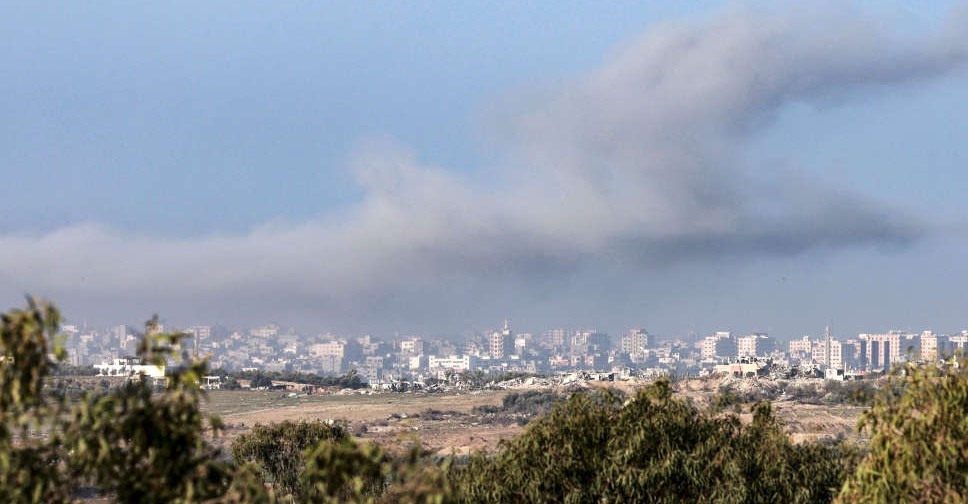
Israeli jets intensified attacks on central Gaza on Sunday, residents and medics said, as battles raged through the rubble of towns and refugee camps in a war that Israeli Prime Minister Benjamin Netanyahu said would take "many more months" to end.
Air strikes pounded al-Maghazi and al-Bureij in the centre of the Palestinian enclave, killing eight people in one house and driving more to flee to Rafah on the border with Egypt from front lines where Israeli tanks are battling Hamas fighters.
A Red Crescent video published on Sunday showed the chaotic aftermath of strikes in central Gaza, as rescuers worked in the dark to carry an injured child from smoking rubble.
Israel's air and artillery bombardment has killed more than 21,800 people according to health authorities in Hamas-run Gaza, with many more feared dead in the rubble, and pushed nearly all its 2.3 million people from their homes.
The war and lack of supplies has left 40 per cent of Gazans at risk of famine, the Gaza director of the UN agency for Palestinian refugees said on social media on Saturday. Israel blockaded most food, fuel and medicine after the October 7 attack.
The United States, Israel's main ally, has urged it to scale down the war and European states have signalled alarm at the extent of Palestinian civilian suffering.
However Netanyahu's comments on Saturday, when he said he would not resign despite opinion polls showing his government is broadly unpopular and defended his security record despite the October 7 attack, indicate there will be no easing any time soon.
He said the "the war is at its height" and Israel would have to retake control of Gaza's border with Egypt - an area now crammed with civilians who have fled the carnage across the rest of the enclave, leading aid agencies to set up "tent cities" for displaced families sleeping rough on the streets.
Retaking the border could also constitute a de facto reversal of Israel's 2005 withdrawal from Gaza, placing it back under exclusive Israeli control and raising new questions over the future of the enclave and prospects for a Palestinian state.
In his last comments as Israeli Foreign Minister before switching to the energy portfolio on Sunday, Eli Cohen said the border was the likely source of weaponry Hamas had obtained over recent years.
Egypt's Foreign Ministry did not immediately comment on Israeli plans to retake the border area or on whether Hamas weapons had entered Gaza from Egypt.

 UK inquiry finds 'chilling' cover-up of infected blood scandal
UK inquiry finds 'chilling' cover-up of infected blood scandal
 Iranian President Raisi killed in helicopter accident, state media says
Iranian President Raisi killed in helicopter accident, state media says
 ICC prosecutor seeks arrest warrants for Israeli, Hamas leaders
ICC prosecutor seeks arrest warrants for Israeli, Hamas leaders
 Assange given permission to appeal against US extradition
Assange given permission to appeal against US extradition
 Israel intends to broaden Rafah sweep, Defence Minister tells US
Israel intends to broaden Rafah sweep, Defence Minister tells US




